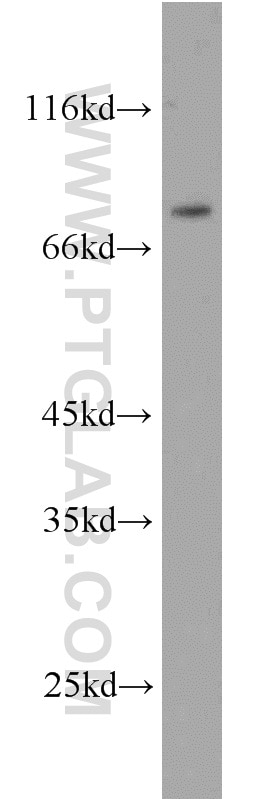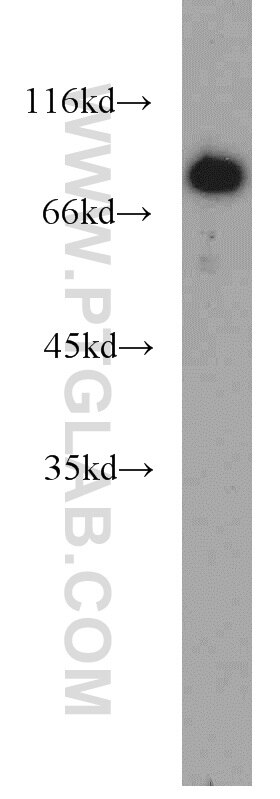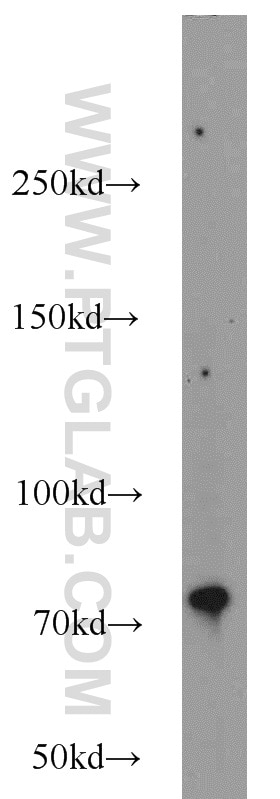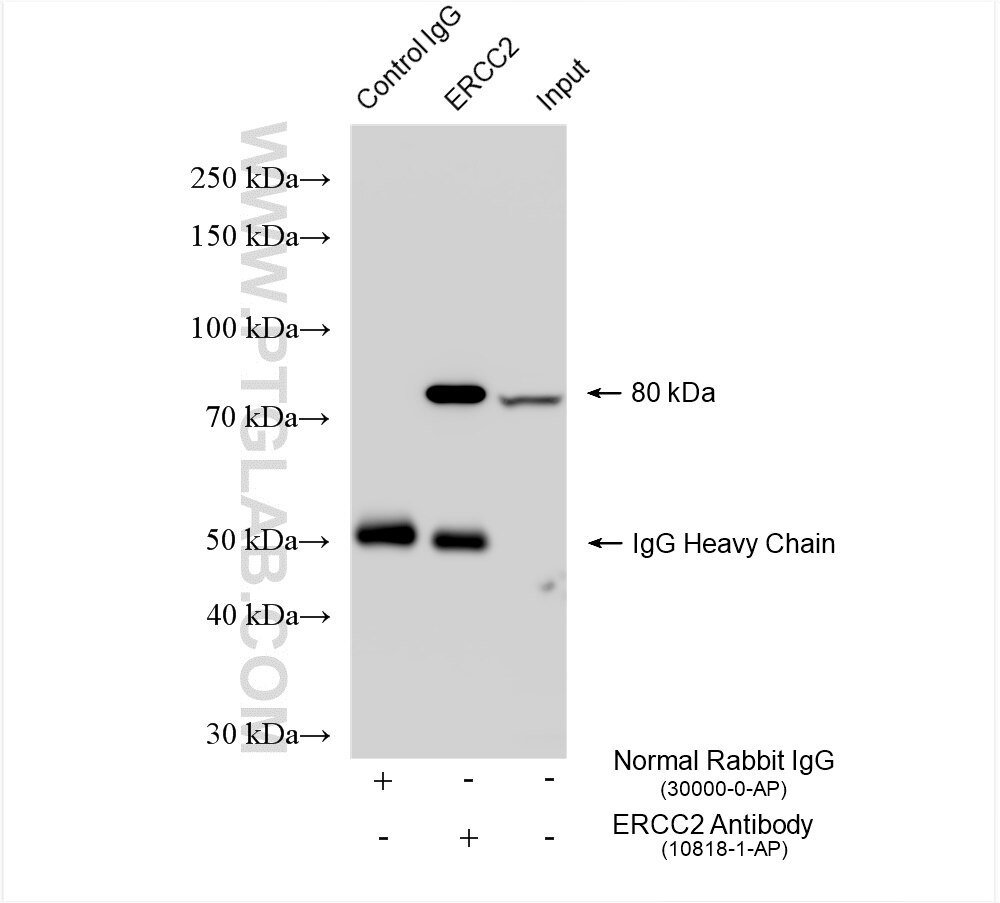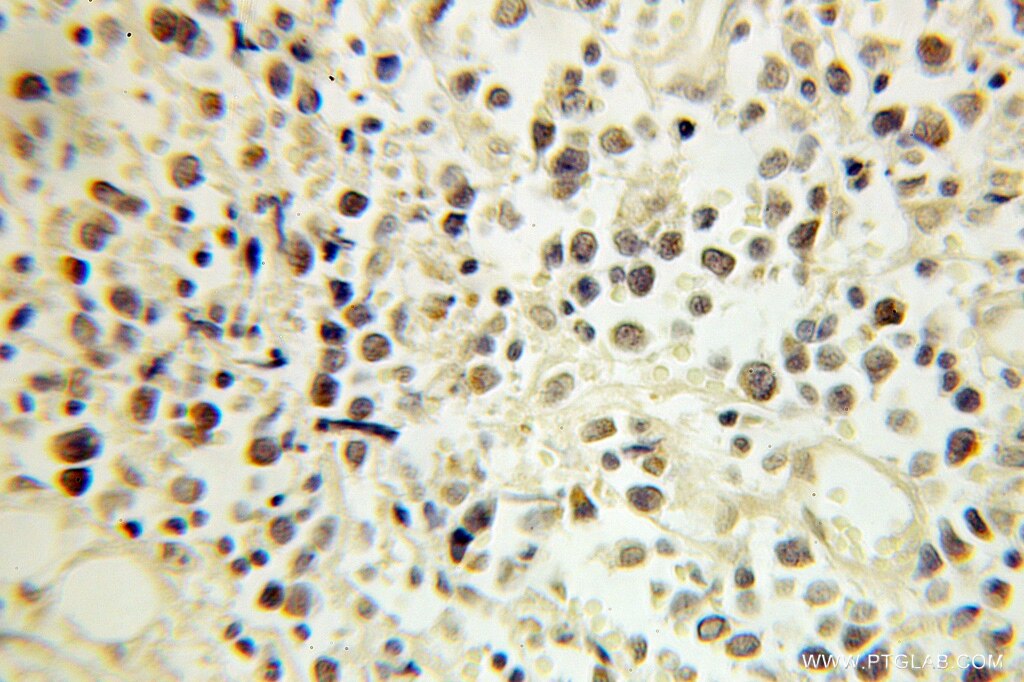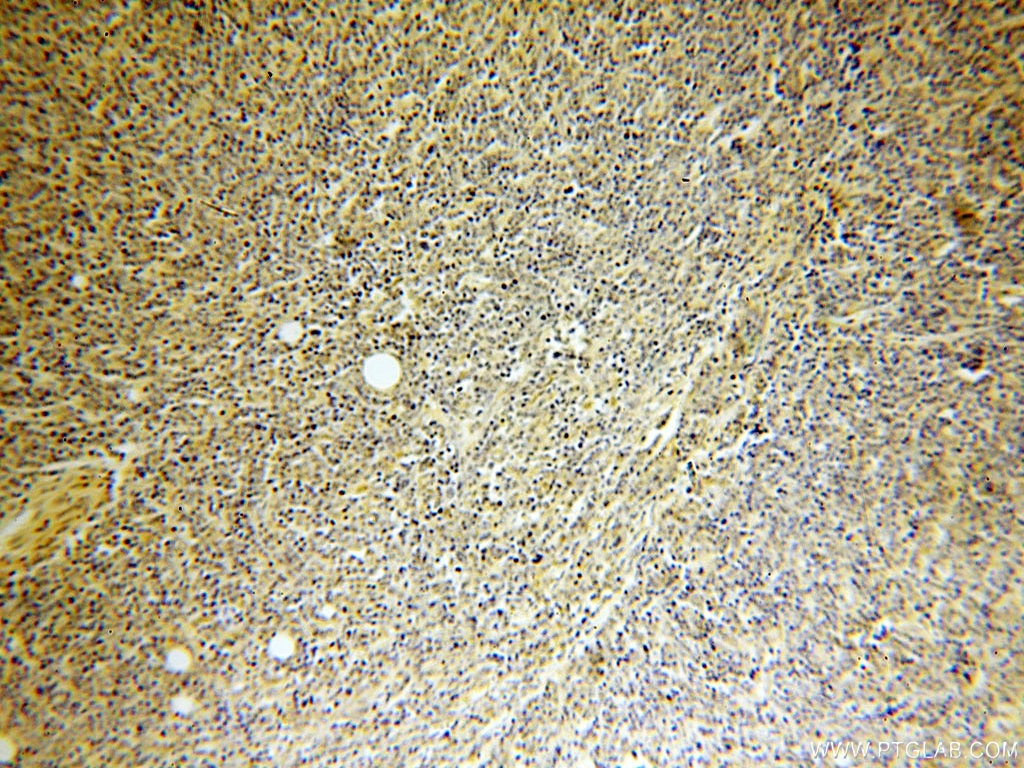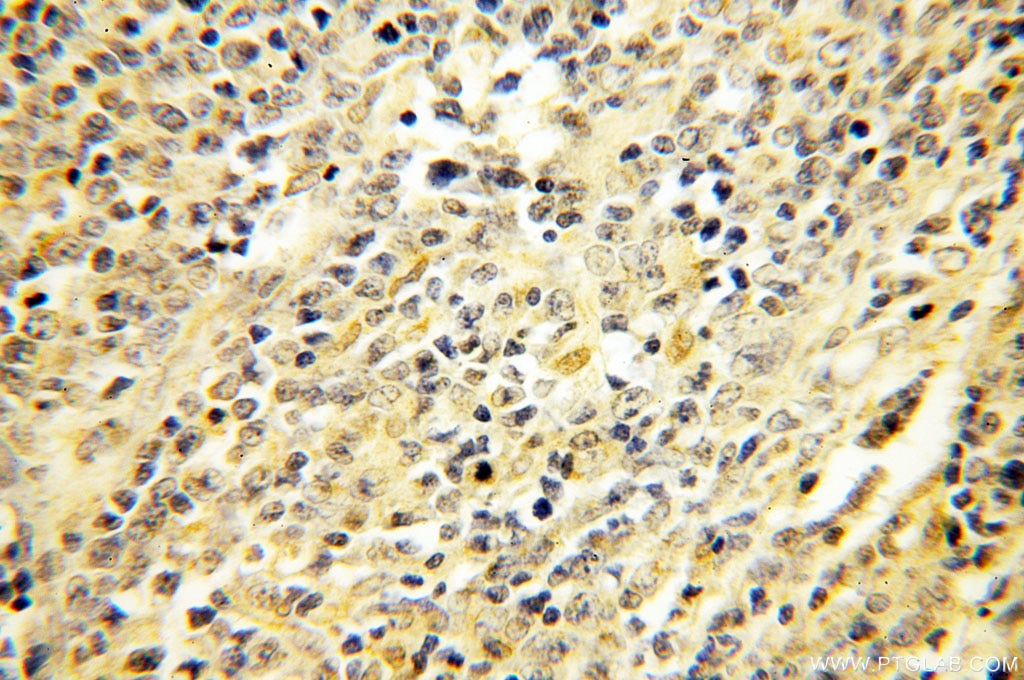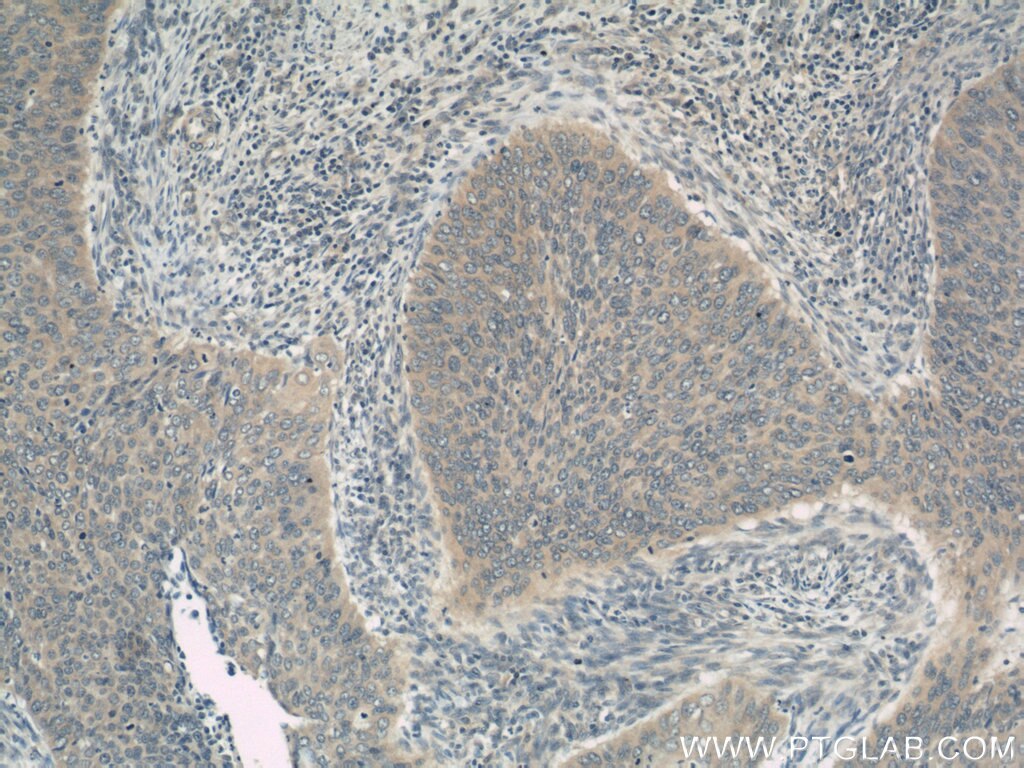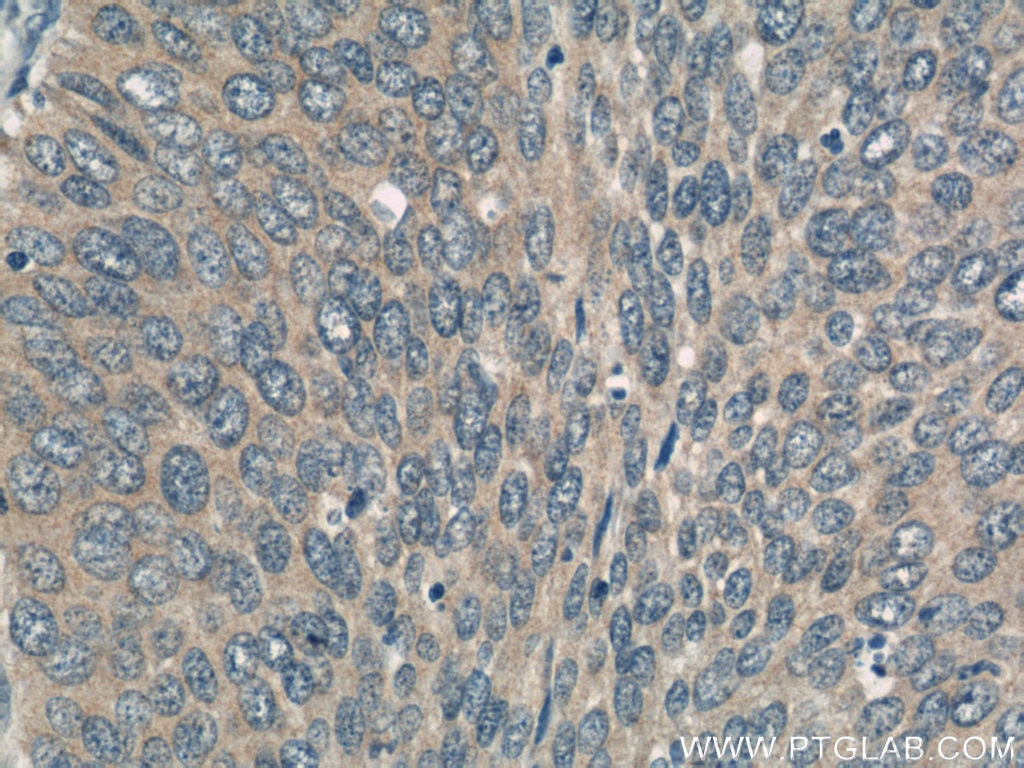Validation Data Gallery
Tested Applications
| Positive WB detected in | HeLa cells, K-562 cells, HEK-293 cells |
| Positive IP detected in | HEK-293 cells |
| Positive IHC detected in | human lymphoma tissue, human cervical cancer tissue Note: suggested antigen retrieval with TE buffer pH 9.0; (*) Alternatively, antigen retrieval may be performed with citrate buffer pH 6.0 |
Recommended dilution
| Application | Dilution |
|---|---|
| Western Blot (WB) | WB : 1:500-1:1000 |
| Immunoprecipitation (IP) | IP : 0.5-4.0 ug for 1.0-3.0 mg of total protein lysate |
| Immunohistochemistry (IHC) | IHC : 1:20-1:200 |
| It is recommended that this reagent should be titrated in each testing system to obtain optimal results. | |
| Sample-dependent, Check data in validation data gallery. | |
Published Applications
| WB | See 9 publications below |
| IHC | See 5 publications below |
| IF | See 1 publications below |
Product Information
10818-1-AP targets ERCC2 in WB, IHC, IF, IP, ELISA applications and shows reactivity with human samples.
| Tested Reactivity | human |
| Cited Reactivity | human, mouse, rat |
| Host / Isotype | Rabbit / IgG |
| Class | Polyclonal |
| Type | Antibody |
| Immunogen | ERCC2 fusion protein Ag1038 相同性解析による交差性が予測される生物種 |
| Full Name | excision repair cross-complementing rodent repair deficiency, complementation group 2 |
| Calculated molecular weight | 87 kDa |
| Observed molecular weight | 80 kDa |
| GenBank accession number | BC008346 |
| Gene Symbol | ERCC2 |
| Gene ID (NCBI) | 2068 |
| RRID | AB_2231330 |
| Conjugate | Unconjugated |
| Form | Liquid |
| Purification Method | Antigen affinity purification |
| UNIPROT ID | P18074 |
| Storage Buffer | PBS with 0.02% sodium azide and 50% glycerol , pH 7.3 |
| Storage Conditions | Store at -20°C. Stable for one year after shipment. Aliquoting is unnecessary for -20oC storage. |
Background Information
Excision-repair complementing defective in Chinese hamster 2(ERCC2), belongs to the nucleotide excision repair pathway, is a component of the TFIIH transcription complex and required for the association of the CDK-activating kinase(CAK) subcomplex with TFIIH. Since TFIIH is involved in both DNA repair and cell cycle progression, ERCC2 is implicated to play an integral role in the nucleotide excision repair pathway. Also it involves in the regulation of vitamin-D receptor activity. As a part of the mitotic spindle-associated MMXD complex, ERCC2 has a role in chromosome segregation.
Protocols
| Product Specific Protocols | |
|---|---|
| WB protocol for ERCC2 antibody 10818-1-AP | Download protocol |
| IHC protocol for ERCC2 antibody 10818-1-AP | Download protocol |
| IP protocol for ERCC2 antibody 10818-1-AP | Download protocol |
| Standard Protocols | |
|---|---|
| Click here to view our Standard Protocols |
Publications
| Species | Application | Title |
|---|---|---|
Am J Cancer Res Predictive value of ERCC1, ERCC2, ERCC4, and glutathione S-Transferase Pi expression for the efficacy and safety of FOLFIRINOX in patients with unresectable pancreatic cancer. | ||
Methods Synchronous detection of miRNAs, their targets and downstream proteins in transferred FFPE sections: applications in clinical and basic research. | ||
Cancer Sci Very low prevalence of XPD K751Q polymorphism and its association with XPD expression and outcomes of FOLFOX-4 treatment in Asian patients with colorectal carcinoma. | ||
Biomarkers Aberrant methylation of nucleotide excision repair genes is associated with chronic arsenic poisoning | ||
J Transl Med Proteomic analysis predicts anti-angiogenic resistance in recurred glioblastoma |
